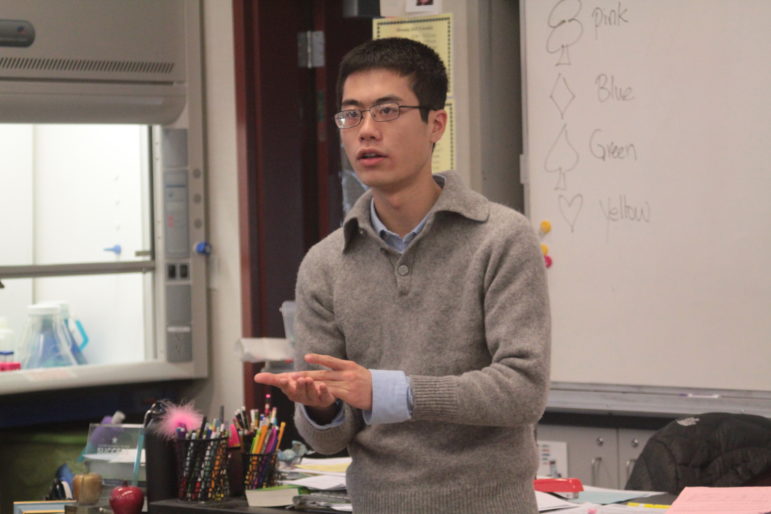
Science Club recently began a cancer research project that will happen over the course of a few months. Led by Science Club president senior Frank Liu and biology teacher Katie Ward, the project serves to provide a hands-on research experience.
“It’s to show [students] what you do when you’re trying to diagnose cancer and [how] to find new treatments,” said sophomore Alex Adelman.
The project process started with Science Club ordering cells online from a lung cancer patient from the ‘70s. After extracting DNA from his cells, club members multiplied the KRAS gene.
The KRAS gene makes a protein that acts as a regulator for cells to spread. When the gene acts normally, cell division is controlled. However, when the gene is mutated, the signaling for cell proliferation is disrupted and cells can divide uninhibited, which can often develop into cancer.
Science Club then sent the amplified DNA to a company that sequences genes, and used those results to compare them to online genome databases.
“One of our strongest resources is actually available to everybody — online databases,” Adelman said. “Pretty much any question you have, there’s an online database related to it.”
As Science Club has just started with its research, cabinet members have to meet outside of their scheduled lunch time meetings to do preparations for the labs. They have already collected data both to teach club members and to continue their research with.
“The final goal of this project would be to write a publication on the results that we have gathered, which is totally possible, but would also require months of research work,” Liu said.
“The final goal of this project would be to write a publication on the results that we have gathered, which is totally possible, but would also require months of research work”
Liu has taken lots of time to prepare for the project on his own, as he sets up for the lab during his teacher aide period for Ward. He carries out most of the important procedures in the lab like running the PCR (a machine that multiplies segments of DNA) and extracting the DNA.
“[Liu has] been using this project to teach us about cancer, what we’re looking into, and also about the PCR,” said sophomore Audrey Yang.
Members of Science Club were also involved in some lab procedures, like pipetting reagents for the PCR, and were taught about the details in gene mutation and protein synthesis.
“We try to be inclusive and give people who don’t have biotech research experience some hands-on experience as well,” Liu said.
In addition to the online databases, there are other resources that Science Club has used. Ward, the Science Club adviser, provided the club with information about where to get reagents as well as all the tools in her classroom. However, Science Club still needs to do its own preparations such as getting its own materials and devices.
“[Ms. Ward] helps us get to know where all the reagents are within the Aragon laboratory,” Liu said, “but she can only help so much, so we have to do the bulk of the preparation.”
A complex research project, like what Science Club is doing, will have many challenges and difficulties, as materials like cells and DNA need to be worked with carefully.
“During the PCR, the DNA kept coming out really poorly, so we had to do it a bunch of times,” Adelman said. “But other than that, it actually went very smoothly, and things went pretty quick.”
This past year, members have started doing experiments about proteins that tie into the cancer research project.
“As the year [progressed], we [did] student-designed experiments, and we get to learn more of the ‘hard’ sciences,” Adelman said. “This year we did anti-cancer topics.”
Science Club will continue this cancer research project, along with conducting more labs and activities, next school year.
